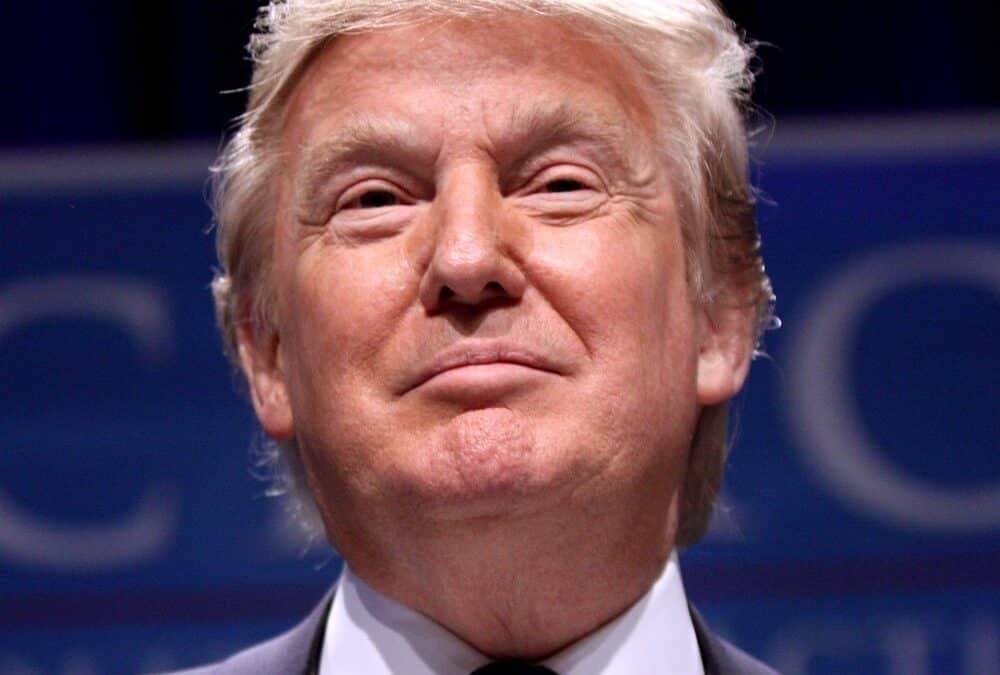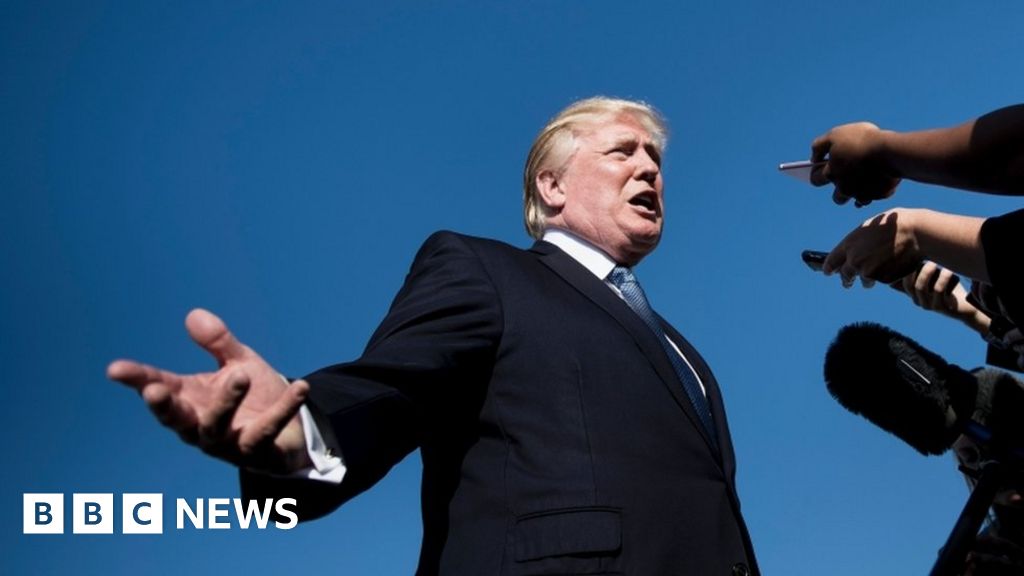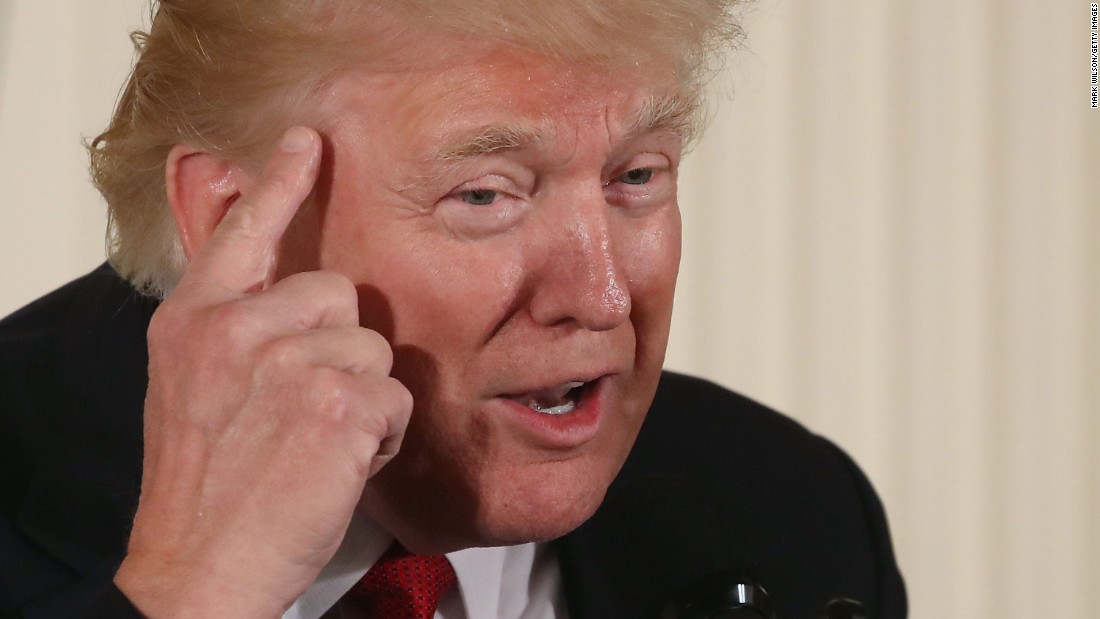The Ultimate Guide: Donald Trump's IQ Unveiled
What about the IQ of Donald Trump?
Donald Trump, the 45th President of the United States, has often been the subject of speculation regarding his intelligence. While there is no definitive answer to the question of his IQ, various estimates and assessments have been made over the years.
In 1997, Trump claimed to have an IQ of "156" on the Stanford-Binet Intelligence Scale, which would place him in the 99th percentile of the population. However, there is no independent verification of this claim, and some experts have questioned its accuracy.
- Daniel Radcliffe Age In 2001
- Did Matt Dillon And Diane Lane Date
- Mark Harmon
- Mls Playoff
- Amy Winehouse Blake
In 2016, a group of psychologists published an article in the journal "Intelligence" in which they estimated Trump's IQ to be between 125 and 130, based on his public statements and behavior. This would place him in the 90th percentile of the population.
Ultimately, the question of Trump's IQ is a matter of debate. There is no definitive answer, and the available estimates vary widely. However, it is clear that Trump is a highly intelligent individual who has achieved great success in business and politics.
iq of Donald TrumpIntroduction
{point}Introduction
{point}Introduction
IQ of Donald Trump
The IQ of Donald Trump has been a subject of much speculation and debate. While there is no definitive answer, various estimates and assessments have been made over the years. Some key aspects to consider include:
- Age Of Daniel Radcliffe
- Travis Van Winkle
- Choi Jin Hyuk Wife
- Who Is Dominic Rains Wife
- Adam Sandlers Wife Grown Ups
- Claims and Estimates: Trump has claimed to have an IQ of 156, while estimates from psychologists range from 125 to 130.
- Intelligence Tests: The Stanford-Binet Intelligence Scale is commonly used to measure IQ, but there is no evidence to verify Trump's claimed score.
- Public Statements and Behavior: Psychologists have analyzed Trump's public statements and behavior to estimate his IQ.
- Cognitive Abilities: Trump has demonstrated strong cognitive abilities, such as memory, attention, and problem-solving skills.
- Emotional Intelligence: Trump's emotional intelligence, including self-awareness and empathy, has been a topic of discussion.
- Success in Business and Politics: Trump's achievements in business and politics suggest a high level of intelligence, although other factors may have contributed to his success.
In conclusion, the IQ of Donald Trump is a matter of debate, with various estimates and considerations. While there is no definitive answer, it is clear that he possesses strong cognitive abilities and has achieved significant success in his career.
| Name | Donald Trump |
|---|---|
| Born | June 14, 1946 |
| Birth Place | Queens, New York City, U.S. |
| Alma Mater | Wharton School of the University of Pennsylvania |
| Occupation | Politician, Businessman |
| Political Party | Republican |
| Years Active | 1971present |
| Spouse | Melania Trump |
| Children | 5 |
Claims and Estimates
The claims and estimates regarding Donald Trump's IQ provide insights into the perception and assessment of his cognitive abilities. These varying figures have sparked discussions about the accuracy of self-reported IQ scores and the methods used by psychologists to estimate intelligence.
- Self-Reported IQ Scores: Trump's claim of an IQ of 156 raises questions about the reliability of self-reported IQ scores. While some individuals may accurately assess their own intelligence, others may overestimate or underestimate their abilities.
- Psychological Assessments: Psychologists use various methods to estimate IQ, including standardized tests, interviews, and observations. These assessments aim to provide an objective measure of cognitive abilities, but they can be influenced by factors such as test-taking skills and cultural biases.
- Variability in Estimates: The range of estimates from psychologists (125-130) suggests that there is no consensus on Trump's IQ. This variability may reflect differences in assessment methods, the specific aspects of intelligence being measured, or the subjective judgment of the psychologists.
- Implications for Understanding Trump's Cognitive Abilities: The claims and estimates of Trump's IQ offer a starting point for understanding his cognitive abilities. However, it is important to consider the limitations and uncertainties associated with these figures and to triangulate information from multiple sources to gain a more comprehensive assessment.
In conclusion, the claims and estimates surrounding Trump's IQ highlight the complex nature of assessing intelligence and the challenges of interpreting self-reported scores. These figures provide a basis for discussion and further exploration of Trump's cognitive abilities, but they should be considered in conjunction with other relevant information to form a balanced understanding.
Intelligence Tests
The Stanford-Binet Intelligence Scale is a widely used standardized test designed to measure intelligence and cognitive abilities. It is named after its creators, Lewis Terman and Alfred Binet, and has undergone several revisions since its initial development in 1905. The test is commonly used in clinical, educational, and research settings to assess intellectual functioning in individuals of various ages.
In the context of Donald Trump's claimed IQ score of 156, the lack of evidence to verify this claim using the Stanford-Binet Intelligence Scale raises questions about the accuracy and reliability of his self-reported score. Without resmi documentation or third-party, it is difficult to determine the validity of Trump's claim.
This situation highlights the importance of using standardized and validated assessment tools when measuring IQ and cognitive abilities. The Stanford-Binet Intelligence Scale is one such tool that has undergone rigorous development and standardization processes to ensure its reliability and validity. It is administered by trained professionals who follow specific protocols to minimize bias and ensure the accurate interpretation of results.
In conclusion, the absence of evidence to verify Trump's claimed IQ score using the Stanford-Binet Intelligence Scale underscores the need for caution when interpreting self-reported IQ scores. Standardized and validated assessment tools, such as the Stanford-Binet Intelligence Scale, provide a more reliable and objective measure of cognitive abilities.
Public Statements and Behavior
The analysis of Donald Trump's public statements and behavior by psychologists offers insights into his cognitive abilities and intellectual functioning. By examining his speeches, interviews, and other public appearances, psychologists can infer certain aspects of his intelligence, including his reasoning skills, verbal fluency, and problem-solving abilities.
One key aspect of Trump's public statements is his use of language. His speeches and interviews are often characterized by simple and direct language, with a focus on concrete examples and personal anecdotes. This suggests a preference for concrete thinking and a reliance on personal experiences in his decision-making process.
Another aspect of Trump's public behavior is his tendency to make bold and confident statements, even in the absence of substantial evidence or support. This behavior may reflect a high level of self-assurance and a willingness to take risks. However, it can also be seen as a lack of critical thinking and a tendency to rely on intuition rather than logical reasoning.
Overall, the analysis of Trump's public statements and behavior provides valuable information about his cognitive abilities and intellectual functioning. While it is important to note that these analyses are based on observations and inferences rather than formal IQ testing, they offer insights into his thought processes and decision-making style.
Cognitive Abilities
The cognitive abilities exhibited by Donald Trump, including his strong memory, attention, and problem-solving skills, provide insights into his overall intellectual functioning and contribute to his performance in various domains.
- Memory: Trump has consistently demonstrated a sharp memory, particularly for details and specific events. He can recall complex information, such as names, dates, and statistics, with accuracy and ease. This ability suggests a well-developed long-term memory system and efficient retrieval mechanisms.
- Attention: Trump exhibits a high level of sustained attention, allowing him to focus on tasks for extended periods without significant distractions. He can maintain his concentration even in demanding or chaotic environments, which is crucial for effective decision-making and problem-solving.
- Problem-Solving: Trump's problem-solving skills are evident in his ability to analyze complex situations, identify potential solutions, and make informed decisions. He can adapt to changing circumstances and consider multiple perspectives, demonstrating cognitive flexibility and strategic thinking.
- Verbal Fluency: Trump possesses strong verbal fluency, which is reflected in his ability to generate ideas and express himself clearly and persuasively. His speeches and interviews often demonstrate a wide vocabulary and a knack for connecting with audiences.
Overall, Trump's strong cognitive abilities contribute to his overall intellectual capabilities and his success in various endeavors. His memory, attention, problem-solving skills, and verbal fluency are essential components of his cognitive profile and play a significant role in his decision-making, communication, and leadership style.
Emotional Intelligence
The emotional intelligence of Donald Trump, encompassing self-awareness and empathy, has been a subject of considerable debate and analysis. While there is no consensus on the precise nature of his emotional intelligence, examining its various facets can provide insights into his behavior and decision-making processes.
- Self-Awareness: Trump exhibits a strong sense of self-awareness, including a clear understanding of his strengths, weaknesses, and motivations. He is able to recognize and manage his emotions, even in challenging situations. This self-awareness allows him to adapt his behavior and communication strategies to different contexts.
- Empathy: Trump's empathy, or his ability to understand and share the feelings of others, has been a topic of discussion. Some observers have argued that he lacks empathy, pointing to his often dismissive or antagonistic remarks towards individuals or groups. Others argue that he does possess empathy but chooses to suppress it for strategic purposes.
- Emotional Regulation: Trump demonstrates strong emotional regulation skills, particularly in high-pressure situations. He is able to control his emotions and maintain composure even when facing criticism or adversity. This emotional regulation allows him to remain focused and make decisions under stress.
- Interpersonal Skills: Trump's interpersonal skills, including his ability to build and maintain relationships, have been a subject of scrutiny. While he can be charming and persuasive, he has also been criticized for his combative and confrontational style. His interpersonal skills have played a significant role in his political career and public image.
Overall, the emotional intelligence of Donald Trump is a complex and multifaceted construct. While there is no consensus on his level of empathy, his self-awareness, emotional regulation, and interpersonal skills have all been influential factors in his personal and professional life.
Success in Business and Politics
The achievements of Donald Trump in the business and political arenas have led many to speculate about his intelligence and cognitive abilities. While his success can be attributed to a combination of factors, his performance in these demanding fields provides evidence of his intellectual capabilities.
- Strategic Thinking: Trump's ability to develop and execute complex business strategies and political campaigns demonstrates his strategic thinking skills. He has a knack for identifying opportunities, anticipating market trends, and adapting his approach to achieve his goals.
- Negotiation and Persuasion: Trump's success in business and politics is partly due to his strong negotiation and persuasion skills. He is able to articulate his positions effectively, build rapport with others, and negotiate favorable outcomes.
- Risk-Taking and Innovation: Trump's willingness to take calculated risks and his embrace of innovation have been key factors in his business ventures. He has a track record of identifying and seizing opportunities, even in uncertain or competitive markets.
- Leadership and Management: Trump's leadership abilities and management style have played a significant role in his success. He has a talent for motivating and inspiring others, and he is known for his hands-on approach to management.
While Trump's achievements in business and politics suggest a high level of intelligence, it is important to note that other factors, such as his wealth, family connections, and charisma, may have also contributed to his success. Nonetheless, his performance in these demanding fields provides compelling evidence of his intellectual capabilities and strategic thinking abilities.
FAQs on "IQ of Donald Trump"
This section provides brief answers to frequently asked questions regarding the IQ of Donald Trump, offering a clear and informative overview of the topic.
Question 1: What is the estimated IQ of Donald Trump?
Various estimates have been made regarding Donald Trump's IQ, ranging from 125 to 130 based on assessments by psychologists. However, there is no definitive answer due to the lack of standardized testing and the limitations of estimating IQ from public behavior.
Question 2: How reliable are the claims about Trump's IQ?
The reliability of claims about Trump's IQ depends on the source and methodology used. Self-reported IQ scores may be subject to bias, while estimates made by psychologists are based on observations and inferences rather than formal testing. It is important to critically evaluate the source and methodology of any IQ claims to assess their credibility.
Summary: The IQ of Donald Trump remains a topic of speculation, with varying estimates and considerations. While his public statements and behavior have been analyzed, there is no definitive answer due to the absence of standardized testing. It is important to approach IQ claims with caution and consider the limitations of estimating intelligence from public behavior.
Conclusion on IQ of Donald Trump
The exploration of "IQ of Donald Trump" reveals a complex and multifaceted topic with varying estimates and considerations. While his public statements and behavior have been analyzed, there is no definitive answer due to the absence of standardized testing and the limitations of estimating intelligence from public behavior. It is important to approach IQ claims with caution and consider the limitations of estimating intelligence from public behavior.
Ultimately, the significance of Trump's IQ remains a matter of debate. Some argue that his cognitive abilities have contributed to his success in business and politics, while others emphasize the role of other factors such as wealth, family connections, and charisma. Nonetheless, the discussion surrounding Trump's IQ highlights the challenges of measuring intelligence and the complexities of human cognition.
- Zodiac Signs With Dates
- Age Of Daniel Radcliffe
- Tony Hicks
- Did Matt Dillon And Diane Lane Date
- Christian Kane

Donald Trump’s IQ Score IQ Test Prep

Can we tell if Donald Trump has a high IQ? BBC News

Are you smarter than Donald Trump? Take our IQ test! CNNPolitics